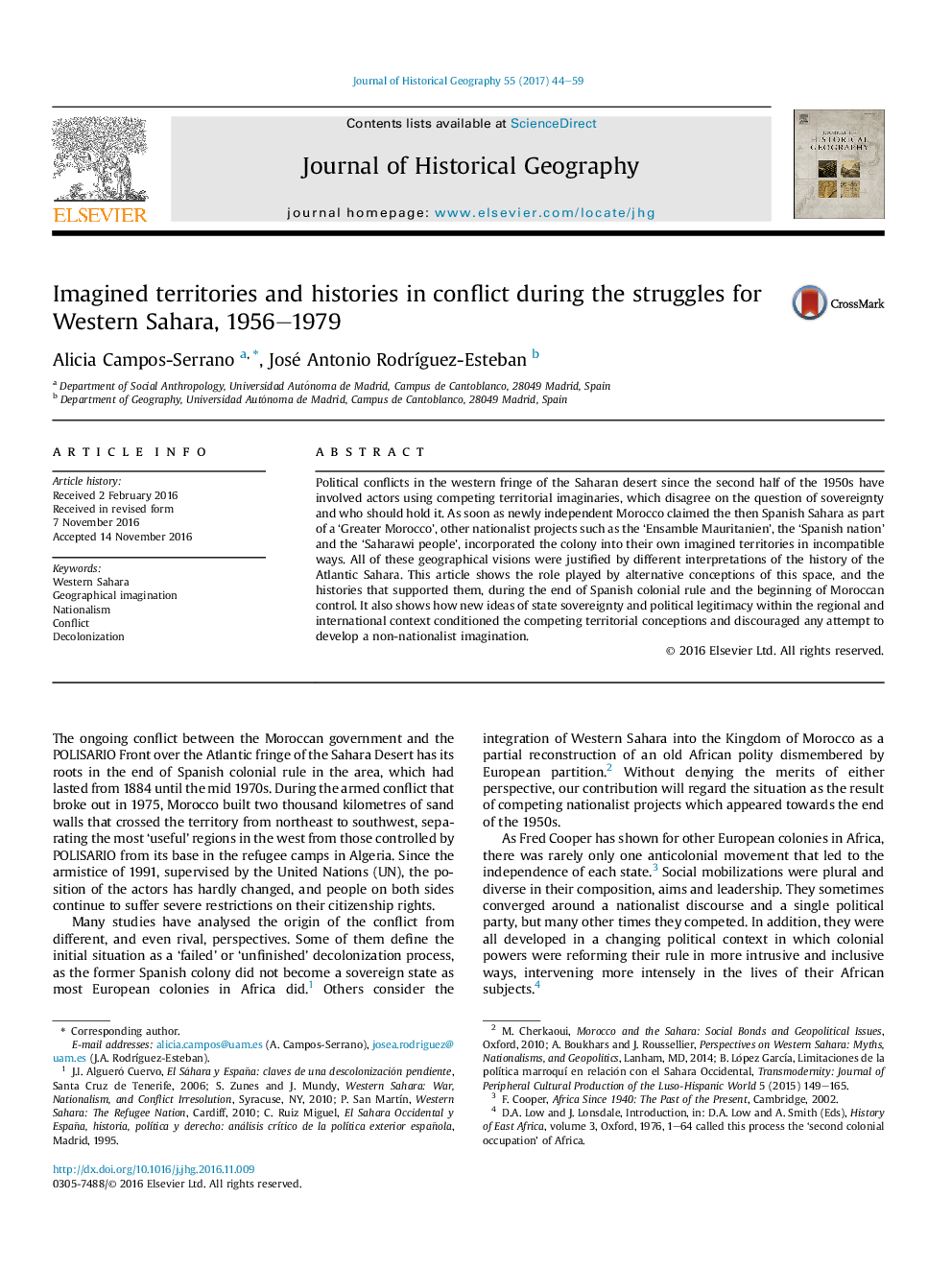| Article ID | Journal | Published Year | Pages | File Type |
|---|---|---|---|---|
| 5112901 | Journal of Historical Geography | 2017 | 16 Pages |
Abstract
Political conflicts in the western fringe of the Saharan desert since the second half of the 1950s have involved actors using competing territorial imaginaries, which disagree on the question of sovereignty and who should hold it. As soon as newly independent Morocco claimed the then Spanish Sahara as part of a 'Greater Morocco', other nationalist projects such as the 'Ensamble Mauritanien', the 'Spanish nation' and the 'Saharawi people', incorporated the colony into their own imagined territories in incompatible ways. All of these geographical visions were justified by different interpretations of the history of the Atlantic Sahara. This article shows the role played by alternative conceptions of this space, and the histories that supported them, during the end of Spanish colonial rule and the beginning of Moroccan control. It also shows how new ideas of state sovereignty and political legitimacy within the regional and international context conditioned the competing territorial conceptions and discouraged any attempt to develop a non-nationalist imagination.
Keywords
Related Topics
Social Sciences and Humanities
Arts and Humanities
History
Authors
Alicia Campos-Serrano, José Antonio RodrÃguez-Esteban,
